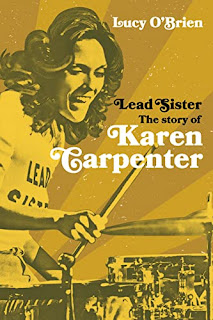
One day in the mid 1970s I horrified my English teacher when she found me reading Jackie magazine. She knew my favourite book was Portrait of the Artist as a Young Man and couldn’t understand how I could hold two such contradictory positions.
Holding contradictory positions is, of course, a requirement of being a teenager (or any other transitional period, eg becoming middle-aged). And, as a talking head said in a recent
TV programme about the magazine ‘If it was in Jackie... Jackie magazine was the bible.’
Outside the classroom, Jackie taught me everything I knew. How to put on make-up (I still do it the same way today). How to lose weight by eating half a Mars bar instead of a whole one. What to wear. How to talk to boys. There was sensible advice from Cathy and Claire, and some slightly less sensible (in fact, rather dodgy) fortune-telling quizzes. And there were, of course, the posters of Marc Bolan and David Cassidy, even if it was tricky putting them up without getting sellotape on the wallpaper (I think I was at university before they invented blu-tack).
It was also, as another talking head put it, ‘
a 1950s bubble merging into the 1970s’. I didn’t realise until I bought a copy of a Jackie anthology for my sister’s birthday how shocking its real message was. Any girl shown in the magazine who had a job was a secretary or, if she was really glamorous, a receptionist. That was it.
When I started secondary school, the headmistress went round the class asking us what we wanted to be when we grew up. The majority chose to be hairdressers or air stewardesses (and this was a grammar school, where you might have expected some aspirations). Well, the only role models we had for 'career women' were scary spinsters like her and her colleagues.
By the time you got to sixth form, things had changed a bit. If you were top of the class you were going to university. A little below and you were going to teacher training college. Anyone left after that was going to work in a bank. University wasn’t a career move: it was an end in itself. No-one suggested what you might do afterwards. I’m not sure anyone actually came out and said it, but I got the impression that the main purpose of university was upward mobility via marriage. I was expected to find a nice middle-class boy who would go into a nice professional job so I wouldn’t have to worry about a career... Actually, what I did do at university was discover feminism.
This is recent history. So why are we surprised by headlines about the
‘concrete ceiling’? There are many good reasons why there are so few women in the board room. Partly it’s because, in the business world, social bonding is done through conversations about football not conversations about shoes. Partly it’s because women are too sensible to buy into the long-hours culture: we’d rather have a life. And partly it’s because we were never taught to want it. Partly, of course, it’s also because we grew up in an era where working for ‘the man’ (as opposed to ‘a man’) was not something to aspire to anyway.
But there weren’t alternative role models for girls, either. When I started looking beyond Jackie magazine, I had to find my inspiration in things written by men and about men: there was, after all, no book called Portrait of the Artist as a Young Woman.










